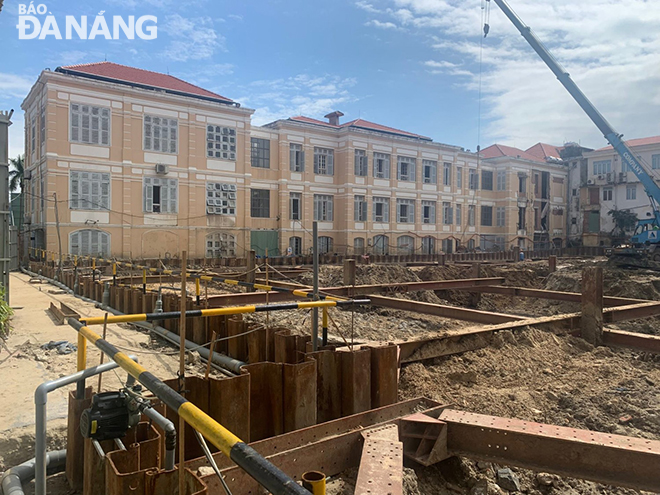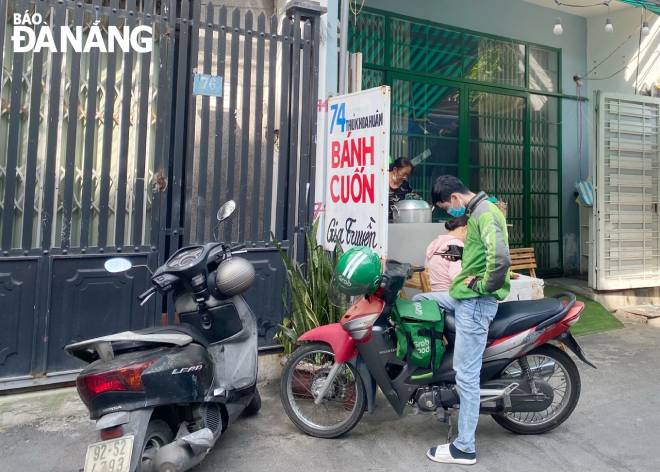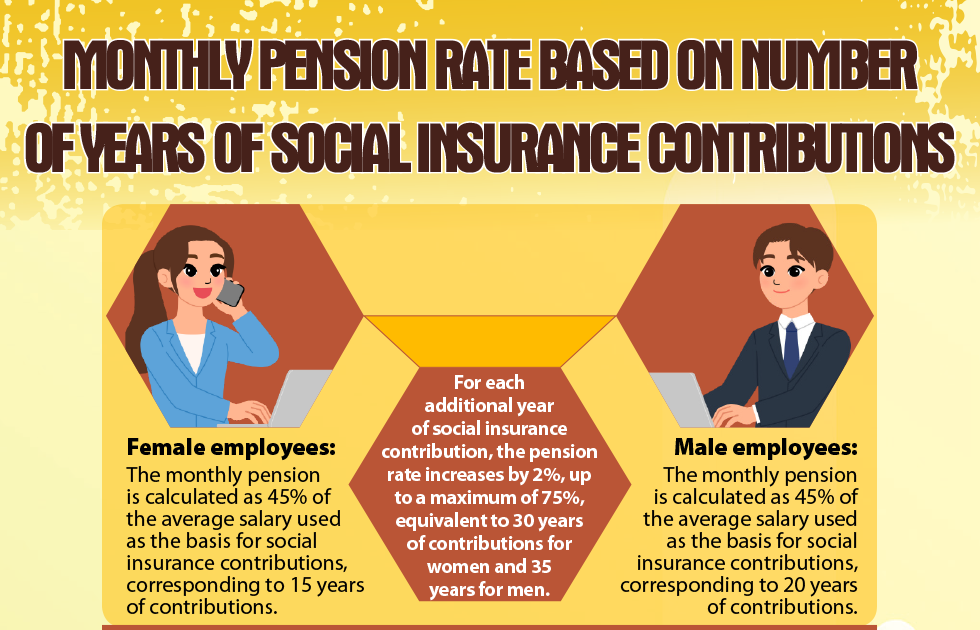Gasoline price hikes drive cost of steel, tech-based transport fares higher
In recent days, domestic construction steel prices have been continuously adjusted up by enterprises. Only from March 3 to 7, 2022, construction steel price increased by about 660 VND/kg - 1,520 VND/kg. Also amid record high gasoline prices, ride-hailing giants have announced an increase in fares.
 |
| Since the beginning of March, 2022, the construction progress of civil and industrial works in the city has been affected due to the increase in the price of most steel products. Here is a scene of the upgrading of the 42 Bach Dang facility into the new Da Nang Museum. Photo: TRIEU TUNG |
As surveyed in the Da Nang market, Kyoei steel brand has seen a strong increase. Specifically, CB240 coil steel has increased by VND 1,220/kg to VND18,220/kg; D10 CB300 rebar is on sale at VND18,020/kg, an increase of VND820/kg.
As for Hoa Phat steel, CB240 coil price has gone up by VND710 /kg to VND17,780/kg; D10 CB300 rebar is priced at VND17,880/kg, up VND 600/kg.
In a similar vein, Viet Nam - Italy Steel Joint Stock Company-produced steel has also increased sharply in selling prices. Accordingly, CB240 coil line has increased by VND710 to VND17,680/kg and the D10 CB300 rebar line has climbed by VND710/kg, to VND17,780/kg.
Other highly popular steel brands such as Viet Duc, Viet Nhat, Pomina, Viet Sing and VMSTEEL has seen hikes in steel prices.
The reason for the continuous increase in steel prices in recent days is due to the hike in raw materials, in which steel billets have gone up.
According to the Viet Nam Steel Association (VSA) on February 23, 2022, the price of billets has exceeded US$700/tonne, suppliers continue to force higher export prices in Southeast Asia. The asking price for the region is about US$20/tonne, higher than last week.
Along with that, the transaction price of iron ore and scrap steel continued to increase, pushing the price of finished iron and steel products in the domestic market to soar.
Ride-hailing giant Grab will raise all fares from March 10 in the face of skyrocketing high gasoline prices.
In Da Nang, GrabCar’s first two-kilometre fare will be raised by VND2,000 ($0.09) to VND27,500 for four-seater and VND34,000 for seven-seater vehicles, and VND12,500 applied to GrabBike service.
That of each subsequent kilometre for these three services will be VND12,400, VND14,600 and VND4,300, respectively.
This tech-based transport firm cited surging gasoline prices as a main reason for the fare adjustments.
 |
| Grab motorbike drivers are pleased with a hike in transport service fares amid the soaring gasoline price. Photo: QUYNH TRANG |
The adjustment of the fares helps offset a part of vehicle operating costs so that drivers can maintain their income, and at the same time encourage them to be active and serve passengers better.
Nguyen Duy, a Grab driver, said that some hikes in the gasoline price as recorded in recent months has caused his profit to decrease significantly. Therefore, the rise of the transport fares is reasonable amid fluctuations in the gasoline price.
Meanwhile, Gojek and BeGroup have yet to announce their plans to increase freight rates in line with gasoline price fluctuations.
According to a representative of Gojek, the company has not yet planned to increase fares or have a promotion exclusively for drivers due to the direct impact of soaring gasoline prices.
In fact, its service fares have been calculated based on factors including changes of the market. Therefore, it cannot adjust the fares in the short-term evolution of fuel prices. Tech-based transport firms need to balance the interests of both drivers and customers. Fare changes may affect the interests of customers.
Similarly, BeGroup has not made any move to increase transport fares.
However, ride-hailing giants are closely following the developments of petrol prices to harmonize the interests of customers and driver partners in the coming time.
Reporting by TRIEU TUNG, QUYNH TRANG – Translating by A.THU








